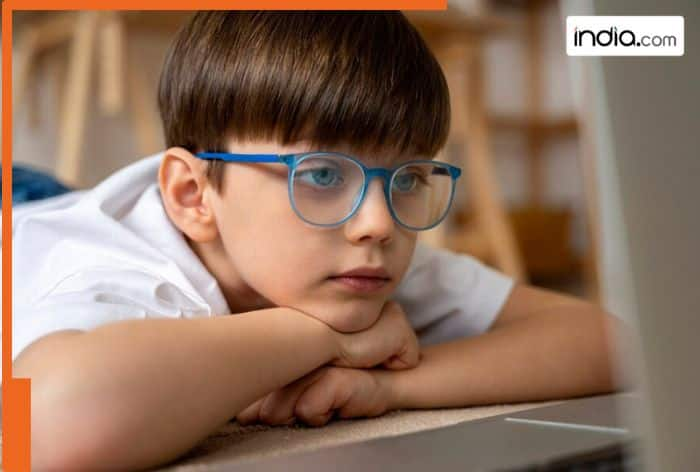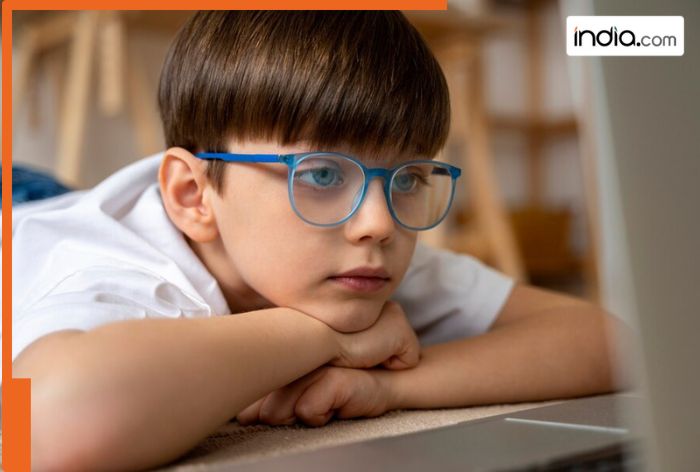Near sightedness is a common issues and increased screentime is a concern. Here are few tips to know for better eye care.

The issue of myopia (also referred to as near sightedness) is beginning to be worrisome owing to the growing trend in this condition among youngsters and children. In this digital age, where devices are integrated into our lives, there has been an epidemic of myopia the world over. Where wearing glasses was a rare sight in the young children and adults, spectacles have become common-use and dot the faces on many in the current generation.
Eye Health Myths
Myth: The rise in screen time has increased myopia among children and adults.
Fact: According to Dr Digvijay Singh, Director Noble Eye Care, Gurugram there is always the chance of strain developing in the eyes due to reading or looking at slides for prolonged hours and so on, but this does not solely lead people to developing myopia. Instead, it is genes and lack of physical activity outside that are the dominant factors. In fact, there are also studies which prove the more hours spent outside reduces the chances of children developing myopia and it is not just due to their reduced screen time.
Myth: It is the blue light from the screens that causes myopia and is harmful.
Fact: On the contrary, blue light has no ill effects on the eyes or can be a cause of myopia so long as it is from a screen. Nevertheless, too much use of screens does cause issues with sleep comfort as it can lead to not enough rest and one’s body feeling drained. This can be avoided by switching on a blue light filter of the device or ignoring the screens at least one hour before sleep.
Myth: Reading on screens is worse than reading on paper.
Fact: It is not the medium either a screen or paper that exposes risk of myopia but the amount of time and distance an object is held close. Focusing on something close for an extended time such as reading a book puts stress on the eyes. The 20-20-20 rule (looking at a distance 20 feet for 20 seconds every 20 minutes) can help in reducing stress on the eye to some extent.
Myth: Reducing the time spent on screens will prevent the progression of myopia.
Fact: Cutting back on screen time can help in eye pressure but does not directly halt the advancement of myopia. Appropriate treatments such as orthokeratology lenses, atropine eye drops, or specialized glasses recommended by the eye care professionals limit myopic progression.
Myth: Children are the only ones that can get screen myopia.
Fact: Excessive screen use can lead to adults developing digital eye strain but that is not the same as myopic conditions arising or degenerating. Symptoms of eyeball strain like dry eyes or headaches are somewhere experienced and they can be treated through rest and suitable postures.
10 Eye Care Tips
- Avoid prolonged screen time: Screen should be used in short intervals. Ideally every 20 minutes one should take a break and focus on a far off object for 20 seconds, says Dr Singh.
- Use a bigger screen: Wherever possible, a larger screen at a distance should be preferred to a smaller screen at near. Use a television to watch your movies rather than a laptop. Prefer a desktop or laptop for online classes or video conferences rather than a tablet or smartphone.
- Proper Lighting: Watch screens in a well-lit room with indirect lighting onto the screen to avoid glare. Watching screens or reading in a dimly lit room causes immense eye strain. Do not have a light just behind the screen or behind you casting your shadow on the screen.
- Screen brightness: Keep screen brightness setting to moderate. Very low or very high brightness both induce strain and can cause eye fatigue.
- Use Glasses: Prescription spectacles (powered) should be worn all the time. An anti-glare coating may be helpful in reducing eye strain. There is no proven benefit of blue blocking or tinted glasses as of today. Glasses should be cleaned on a regular basis and there should be no scratches on the lens.
- Frequent blinking: Our blink rate reduces from 14-16 times a minute to 4-6 times a minute when we are on the screen. Make sure you blink regularly to prevent eye fatigue and dryness. Use of lubricant eyedrops can be done if eyes seem dry or tired.
- Spend Time Outdoors: Spending time outdoors is proven to be among the strongest protectors against myopia and worsening eyesight. It is recommended to spend at least 2 hours outside in natural light every day.
- Reduce near activities: Children and young adults should limit the time they spend on doing near activities including reading, digital devices and fine art work. Constant focusing on near work for more than 45 minutes is likely to increase the chance of developing progressive myopia.
- Take a good diet: A diet rich in green leafy vegetables, carrots, beetroot, citrus fruits, almonds, avocados, eggs and fish can help support heathy cornea and retina function which can boost good eyesight.
- Do eye exercises: Simple eye exercises such as pencil pushups, distance focusing exercises and relaxation exercises go a long way in toning the muscles and overcoming a developing eye weakness.

